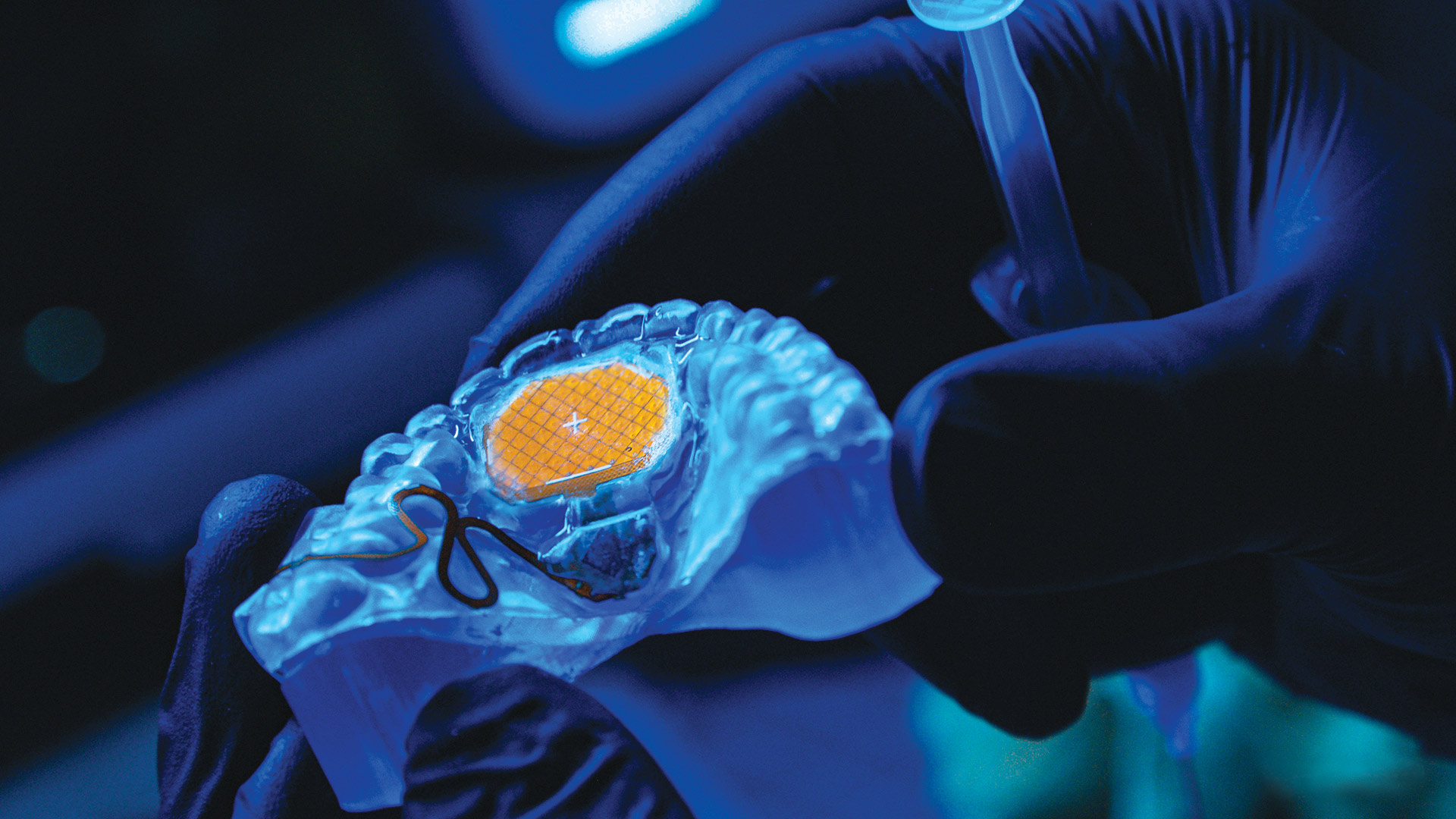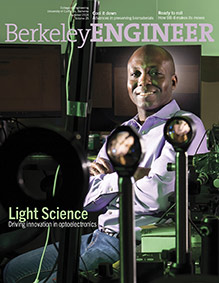
A new paradigm
Designing devices for people with disabilities demands more than engineering know-how; it requires a desire to understand the different ways we all interact with the world. For Corten Singer (B.A.’17 CS, B.A.’17 CogSci, M.S.’18 EECS), nothing is more fulfilling than developing assistive technologies that impact everyday lives.
Now, he’s poised to do just that. With fellow alum Tomás Vega (B.A.’17 CS, B.A.’17 CogSci), Singer has co-founded Augmental, an assistive technologies company that has developed a unique tongue-controlled touchpad, MouthPad^.
MouthPad^ transforms the concept of the computer mouse or trackpad into a Bluetooth-enabled device that rests like a retainer on the roof of one’s mouth. By sliding or pressing their tongue, or even creating reverse pressure in their mouth with a “sip” gesture, MouthPad^ users can direct their cursor to perform standard operations like click, click-and-drag and right click. The device also features a pressure sensor and a motion sensor, so that head movement and other gestures can be used for input.
“This is to enable more universal access to the control of one’s personal devices — computer, smartphone, tablet,” said Singer. “Such access doesn’t depend on using the hand-based paradigm, which has pretty much dominated computer interaction for decades.”
It was at Berkeley, while spending time with friends who were part of the Berkeley Disabled Students’ Program, that Singer took a deep dive into assistive technology. He and some classmates, including Vega, hacked an automatic door-opening motor. Their custom-made app allowed a sensor to detect when a user flexes or squeezes their hand muscles, triggering the door open command.
Later, as part of his embedded and cyber physical systems class, EECS 149, Singer built a self-driving, obstacle-avoiding wheelchair. “This work was foundational to the internship I later did at Microsoft — in which I designed gaze-based wheelchair navigation interfaces for people with ALS and other neurodegenerative diseases — and, ultimately, my master’s project,” said Singer.
As a master’s degree student, Singer worked with Björn Hartmann, associate professor of electrical engineering and computer sciences. The CITRIS Invention Lab played a key role during this time, not only providing a community, but also cutting-edge resources and around-the-clock
access for superusers like Singer.
Still, Singer never envisioned becoming an entrepreneur. But that changed after a call from Vega, who proposed designing an interface system for people with spinal cord injuries. The idea was to use the tongue, what Singer and Vega like to call “the eleventh finger” because of its incredible dexterity and ability to move around with precision and ease of control.
“This was in the realm of assistive technology, which I love, but it even spoke to this future in which we kind of change the paradigm of human-device interaction for everyone, even people without mobility issues,” he said.
Since founding Augmental, Singer and Vega have been featured on the Forbes’ “30 Under 30” list, won the Innovation Grand Prix at the 2023 Cannes Lions International Festival of Creativity and were named the grand prize winner at this year’s Consumer Technology Association Foundation’s Pitch Competition.
As for Singer, he remains passionate about assistive technologies and human-centered design. “My time at Berkeley and working on MouthPad^ have taught me how important it is to iterate the design process based on feedback from real users,” he said. “It’s the best way to ensure that I don’t just design a cool engineering solution, but something that is truly useful to people.”
Learn more: Berkeley alum develops tongue-controlled touchpad
